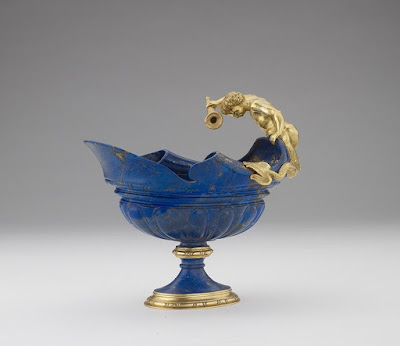 |
| Paulus Willemsz van Vianen Argus asleep, with Mercury approaching 1610 silver plaque Rijksmuseum, Amsterdam |
 |
| Paulus Willemsz van Vianen Pan and Syrinx 1603 silver plaque Rijksmuseum, Amsterdam |
 |
| Paulus Willemsz van Vianen Minerva and the Muses 1604 silver plaque Rijksmuseum, Amsterdam |
 |
| Paulus Willemsz van Vianen Feast of the Gods 1604 silver plaque Rijksmuseum, Amsterdam |
 |
| Paulus Willemsz van Vianen The Resurrection 1605 silver plaque Rijksmuseum, Amsterdam |
 |
| Paulus Willemsz van Vianen St Sebastian, St Catherine of Alexandria and St Roch ca. 1600 silver plaquette Metropolitan Museum of Art, New York |
 |
| attributed to Paulus Willemsz van Vianen Ewer with Merman Handle ca. 1600-1610 carved lapis lazuli mounted in gold Ashmolean Museum, Oxford |
 |
| Paulus Willemsz van Vianen Minerva ca. 1590-1600 gilt-bronze shield Rijksmuseum, Amsterdam |
 |
| Paulus Willemsz van Vianen Diana and Actaeon 1610 gold cup with lid private collection on long-term loan to the Rijksmuseum, Amsterdam |
 |
| Paulus Willemsz van Vianen Diana and Actaeon 1613 silver basin Rijksmuseum, Amsterdam |
 |
| Paulus Willemsz van Vianen Design for Silver Vessel with Scenes from the Passion of Christ ca. 1600 drawing Metropolitan Museum of Art, New York |
 |
| Paulus Willemsz van Vianen Satyr spying upon the Goddess Diana ca. 1600 drawing Metropolitan Museum of Art, New York |
 |
| Paulus Willemsz van Vianen Side of a Rocky Cliff ca. 1600-1605 drawing Metropolitan Museum of Art, New York |
 |
| attributed to Paulus Willemsz van Vianen Study of Gnarled Tree before 1613 drawing Rijksmuseum, Amsterdam |
 |
| Paulus Willemsz van Vianen Study of Gnarled Tree and Stump ca. 1605-1613 drawing Rijksmuseum, Amsterdam |
"The artist Paulus van Vianen is best known as a goldsmith who worked for most of his life at the court of Rudolf II (1552-1612) in Prague. Apart from his designs for metalwork, a considerable part of his drawn oeuvre consists of landscapes and nature studies. Considering the fact that the artist made no paintings or print designs with such imagery, we can assume that Van Vianen made these drawings purely for his own pleasure. His sketches are characterized by a remarkable degree of realism, and in that respect can be considered illustrative of the artistic development at the time: during the last decades of the sixteenth- and early years of the seventeenth-century, landscape painting made a leap towards greater realism, away from the more idealized and dramatized scenery."
– from curator's notes at the Metropolitan Museum of Art, New York